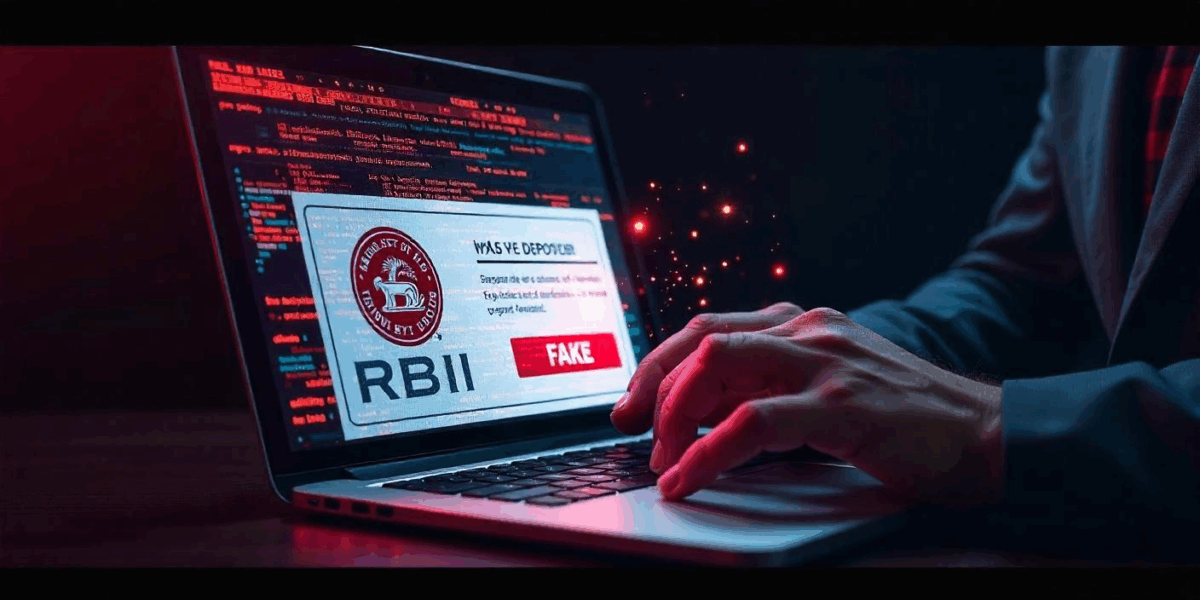“Ma’am, this is an urgent call from the Reserve Bank. We’ve flagged suspicious activity on your FD. Please verify your identity immediately to prevent account suspension.”
That’s how it began.
Anita (name changed), a 45-year-old school teacher from Chandigarh, received a call that sounded serious and authentic. It was about her fixed deposit worth several lakhs, her safety cushion for her daughter’s education, and her family’s emergencies.
“But… I didn’t request any change,” she told the caller, her voice tightening.
“We understand, ma’am. But cybercriminals are very active lately. We just need to verify your identity. Kindly download the RBI Safe Verification App through this link.”
The rest, as you might guess, spiraled quickly.
The Face of a New Scam: Not Your Everyday Phishing
This wasn’t your typical “Nigerian prince” email. This scam looked and felt real:
- A call from what appeared to be an authentic RBI helpline number
- An app link that mimicked a government security app
- Polite, fluent Hindi-speaking “officials”
- And a detailed explanation of how “FDs are under review due to RBI’s new verification protocol”
Anita, like many educated and tech-aware individuals, wasn’t careless.
She just didn’t know that FRAUDSTERS HAVE GONE CORPORATE — they talk like support staff, build apps like startups, and exploit your trust in institutions.
What Really Happened to Her FD?
Once Anita installed the fake app, it gave hackers complete access to her phone, OTPs, messages, banking credentials. In less than 30 minutes, ₹8,16,000 was siphoned off from her fixed deposit account.
She tried calling back.
“The number you are trying to reach is currently switched off.”
And just like that, years of savings vanished into thin air.
If You Think FDs Are Safe, Read This Twice
Most Indians believe Fixed Deposits are their safest financial asset. Banks insure them (up to ₹5 lakh), and they’re supposed to be locked and secure.
But here’s what scammers know — and what you should, too:
- FDs can be prematurely broken with minimal verification.
- If your bank credentials are compromised, so are your FDs.
- Many victims don’t even realise they can lose FDs — until it’s too late.
- Apps that look legitimate (with RBI, SEBI logos) are often clones designed to record your activity and keystrokes.
How to Stay Smarter Than the Scammers
Would you give your house keys to a stranger with an “official” ID card? Then why trust a caller just because they say “RBI” or “SEBI”?
Here’s a checklist every FD holder should follow:
- Never download apps from unknown links or messages
- Banks and the RBI never ask for OTPs or app installations for FD verification
- Always call your bank branch directly for clarification — never trust inbound calls blindly
- Register for transaction alerts for FDs too, not just savings accounts
- Google the number before answering or acting on any such request
Bottom Line: Your Money Is Safe — Until You Make It Vulnerable
Scammers are no longer just “hackers in hoodies.” They are method actors, psychologists, coders, and professional manipulators. The easiest way for them to win is if you don’t even know such scams exist.
So, the next time someone calls you about your FD with a tone of urgency, ask yourself — “What’s more risky — hanging up or blindly trusting them?”







